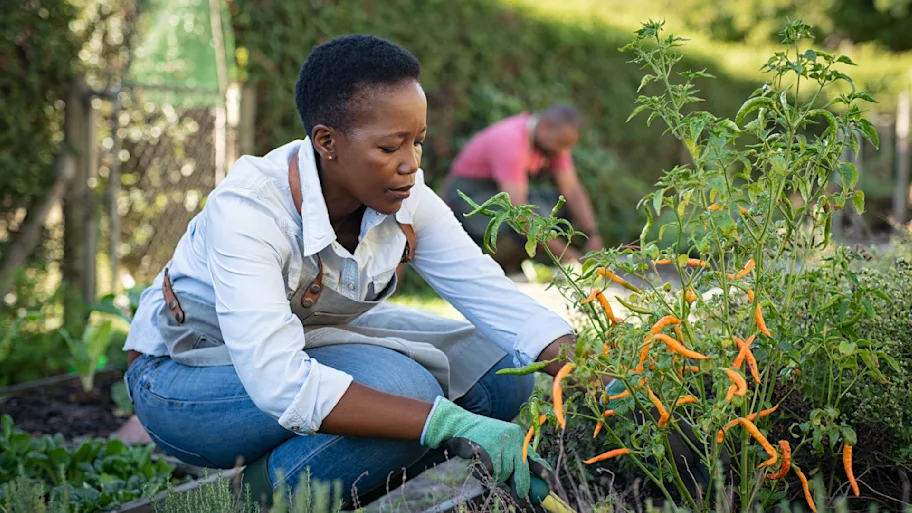
- Science news
- Featured news
- Fighting chronic pain with food: Here are five Frontiers articles you won’t want to miss
Fighting chronic pain with food: Here are five Frontiers articles you won’t want to miss
By Deborah Pirchner, Frontiers science writer

At Frontiers, we bring some of the world’s best research to a global audience. But with tens of thousands of articles published each year, it’s impossible to cover all of them. Here are just five amazing papers you may have missed.
Certain foods help ease chronic pain
Chronic pain caused by rheumatic diseases often requires prolonged treatment using drugs which are associated with side effects. Eating a certain diet, however, has been suggested as a possible way to alleviate chronic pain symptoms. Recommended foods include berries, fatty fish, and avocados. In a pilot study, researchers in Spain have evaluated the efficacy of an anti-inflammatory diet in patients with chronic pain. They have published their findings in Frontiers in Nutrition.
In a first step, the researchers designed a 13-item anti-inflammatory dietary guide, including anti-inflammatory foods like curcumin and coffee. Foods with inflammatory properties, for example red meat, gluten, and cow’s milk, were excluded from the list. In the second part of the study, participants followed the diet for four months. The researchers found a positive correlation between the anti-inflammatory food participants ate and physical characteristics, stress, and pain. Consuming the anti-inflammatory diet also improved depression and sleep disturbances.
Article link: https://www.frontiersin.org/articles/10.3389/fnut.2023.1205526/full
Off-the-shelf probiotics may not deliver what they promise
Living microorganisms, known as probiotics, have been shown to confer health benefits for oral diseases, including tooth decay and gum disease, if administered in small amounts. Their effectiveness, however, is dependent on several factors, one of them being the way probiotic products are prepared for being sold in stores. To create a shelf-stable product, probiotics are temporarily inactivated through drying or freeze drying.
Researchers in Belgium have now examined if preparing probiotics for an extended shelf-life compromises their viability. Writing in Frontiers in Microbiology, they tested 21 probiotic products for oral health and analyzed the number of living and dead cells they contained. Their findings indicated that many of the examined products failed to contain the claimed amounts of living cells. Additionally, they found that many did not fit the criteria of a probiotic supplement based on either being insufficiently characterized or lacking clinical evidence about their effectiveness.
Article link: https://www.frontiersin.org/articles/10.3389/fmicb.2023.1219692/full
Elkhorn coral grows sustainably just four years after planting
Once thriving in large thickets in Caribbean and Atlantic reefs, populations of the critically endangered elkhorn coral have plummeted rapidly over the past few decades. This downward trend started when human impact on coral reef ecosystems increased. Now, however, in a new article published in Frontiers in Marine Science, researchers in the US have observed some elkhorn corals spawned just a few years after being planted in reefs off the coast of Florida.
In 2022, the researchers observed spawning activity among Elkhorn coral colonies outplanted in March 2018, indicating that nursery-raised fragments can become reproductively mature in as little 52 months after outplanting. These spawning observations, together with successful fertilization, larval development, and settlement in the lab, marks a significant milestone in efforts to restore coral populations that are currently found on endangered species lists, the researchers wrote.
Article link: https://www.frontiersin.org/articles/10.3389/fmars.2023.1180996/full
Bee resistant to deadly virus may infect vulnerable species
Deformed wing virus (DWV) is is a major driver of worldwide bee dying, with honeybees being the species most affected by DWV-caused colony mortality. The infectious disease, however, has also been found in solitary bee species, but there is little data on how the virus can transmit to and from the solitary red mason bee.
Writing in Frontiers in Ecology and Evolution, researchers in Switzerland have examined if DWV obtained from honeybees can replicate in red mason bees. Their data showed that in red mason bees the deadly virus did not replicate, which could indicate immunity. However, while red mason bees hosted the virus, it remained infective for honeybees after 16 days. Therefore, this solitary bee species has the potential to act as a transient spillover host. This could have wide-reaching consequences, the researchers warned, which ultimately could affect pollinator health and, in the long term, food security.
Article link: https://www.frontiersin.org/articles/10.3389/fevo.2023.1122304/full
Malaria downregulates immune response in children
Malaria still kills hundreds of thousands every year; often affected are children whose immune systems are overwhelmed. Now, in a new study published in Frontiers in Genetics, scientists have investigated the reaction of children’s immune systems to malaria infection.
An international team of researchers examined blood samples from children dating from before, during, and after a malaria infection. Their findings showed that malaria caused downregulation of immune cells, which are crucial to the system’s fightback against the disease. During infection, the expression of immune cells, a process in which information from the gene is used to produce end products, was heightened. After treatment, however, cell expression was reversed to pre-infection rates. Samples were also tested for different kinds of white blood cells, which play a key role in the immune system. During infection, levels of certain types of white blood cells fell, while others rose before returning to pre-infection levels after treatment.
Article link: https://www.frontiersin.org/articles/10.3389/fgene.2023.1197933/full
REPUBLISHING GUIDELINES: Open access and sharing research is part of Frontiers’ mission. Unless otherwise noted, you can republish articles posted in the Frontiers news site — as long as you include a link back to the original research. Selling the articles is not allowed.






